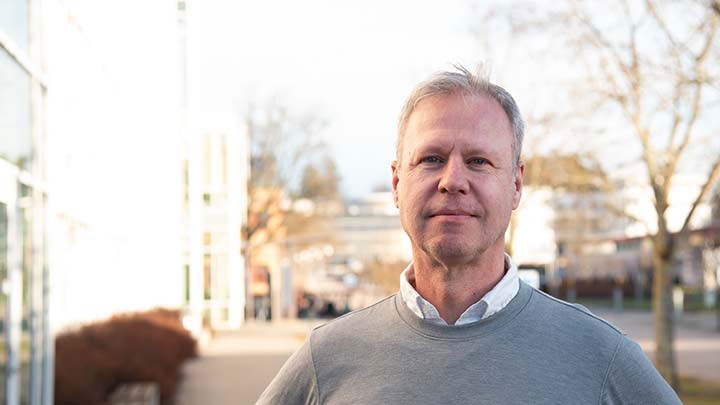Mats Landqvist - new professor 2023

Mats Landqvist is professor of rhetoric specialising in crisis communication. Today his research includes looking at crisis communication in an unpredictable, changeable and potentially dangerous world.
“My doctoral thesis examined negotiations between Swedes and Russians. Back then, it was an imaginary roleplay. Now it’s for real,” he says.
- 1960 Born in Norrköping, Sweden
- 2006 Obtained his PhD in the Swedish language at Örebro University with his thesis Förhandlares kommunikativa kompetens (The communicative competence of professional negotiators)
- 2012 Docent in Swedish at Södertörn University
- 2016 Professor of Swedish at Södertörn University
- 2022 Professor of Rhetoric at Örebro university
Mats Landqvist’s thesis was part of a project funded by what was then the National Board of Civil Emergency Preparedness.
“I studied the way in which experienced international negotiators act within the framework of the negotiation dialogue and identified the linguistic characteristics of a skilfully executed negotiation between parties that are on an equal footing. Basically, what it is that constitutes the professional code for the dialogue.”
Development project within elderly care
Instead of continuing his studies of high-profile talks and diplomacy, however, Mats Landqvist moved on to a large development project within elderly care. In it he applied rhetorical negotiation models to study, for example, the way assistant nurses bridge language barriers and culture gaps to motivate older persons to engage in everyday activities. The aim of the project was to create methods for parallel development of professional as well as language skills.
As a result, Mats Landqvist became interested in communication within healthcare. He studied the way in which telephone hotline nurses offer advice in emergencies by using discourse theory, in this case between a professional and a caller with some kind of emergency. The aim was, again, to study the professional code.
“It turned out that the calls followed certain principles that differed from the specialist telephone nursing training. Focus was on engaging with a person in stress, via the phone, to get them to understand the advice given, to get them to want to follow the advice and then to actually do what the nurse encourages them to do.”
Social structures play a part
Some of the healthcare hotline calls that Mats Landqvist analysed showed that social structures are not insignificant for how a call plays out. That led him to look at linguistic discrimination as a subtle phenomenon, in other words, as more than solely derogatory comments or name-calling. He studied how police officers and nurses in two countries experienced language use – whether it created conditions for inclusion or rather the opposite, exclusion and discrimination.
“Language and discrimination has evoked great interest outside of academia, especially within professions dealing with people and the world of work,” says Mats Landqvist.
His research has also looked at how healthcare professionals contribute with content to blogs or online health forums, where people who are themselves afflicted may reuse some of that knowledge or object to it and replace it with their own experiences.
Working with sustainablility
Today, Mats Landqvist’s research follows several tracks: sustainability in climate and environment, but also democratic sustainability. Focus is on who you can reach with information and who can or may make their voices heard. He is also interested in questions on how academic conceptual frameworks find their way into society.
“Young people get their knowledge about the world around them from network apps and their awareness of national and global crises can depend on the way in which the messages are packaged in that type of digital media.”
So, Mats Landqvist also researches crisis communication design. To him, rhetoric as a research field is important at a time when information is spread and distorted uncontrollably and when new media create new opportunities for public authorities and administrations, for instance, to reach out with important messages.
“Classic analysis models, or sometimes modern versions of them, have also proved valuable for understanding the key stakeholders in a crisis who are speaking, writing or debating, as well as for identifying the error sources, threats and hate that disrupt communication,” he says.
